Weeknotes 2022.40
A few things I’ve been thinking about this week. The fortieth post of a series.
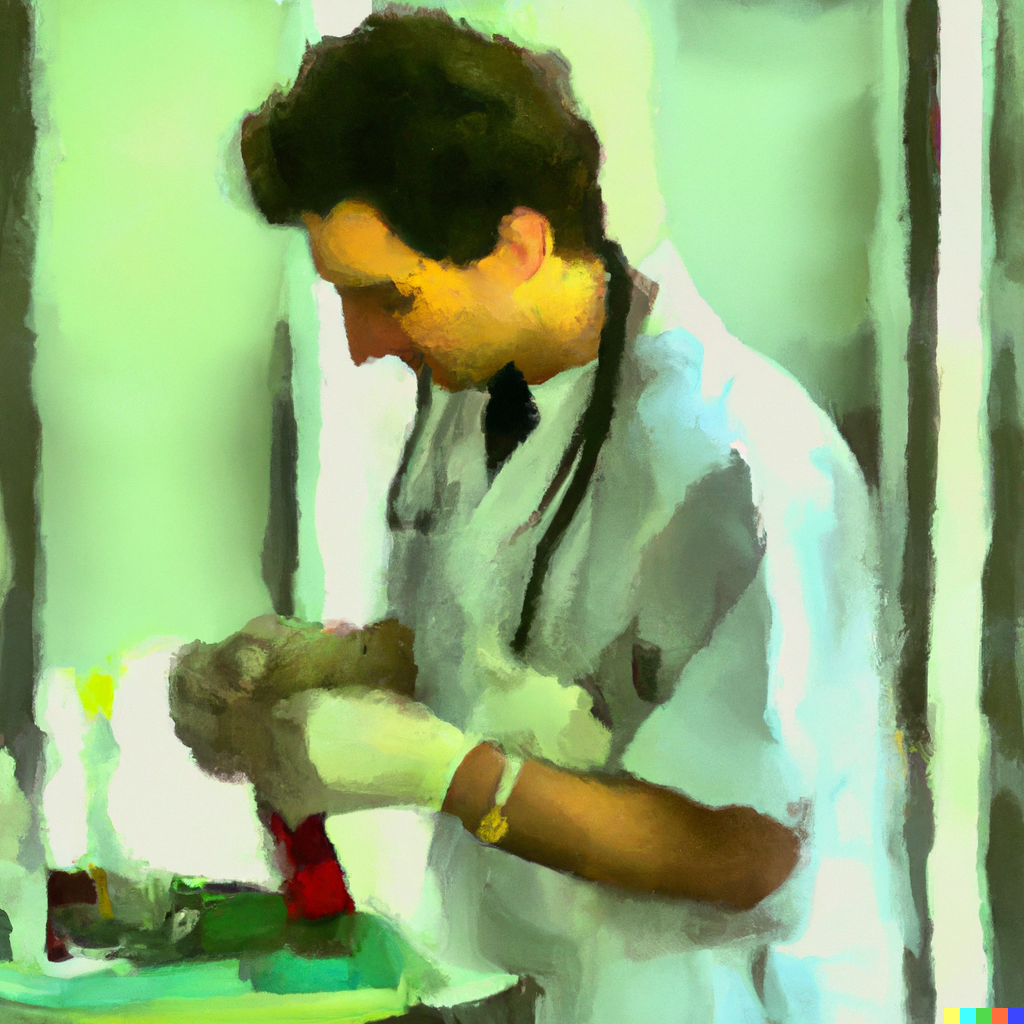
I’ve been reading Andrew Holleran’s The Kingdom of Sand this week. About a third of the way through the book, the narrator reflects on his decision to continue living in his parents’ house:
I liked the idea of keeping the same post office box, the same bedroom with the same books I’d had to read in high school lined up in the headboard of my bed, in a little compartment whose sliding door I merely had to push back to pull out my well-worn paperbacks of Hamlet and The Great Gatsby. I liked never having to write the alumni magazine to say I had a new address, never having to switch banks or have to ask my dentist to forward my records to a new town. I wanted to stay in one dear, perpetual place. I wanted to watch what happened to it over time.
Even the act of reading that makes me feel a bit claustrophobic, a bit suffocated. I couldn’t disagree more.
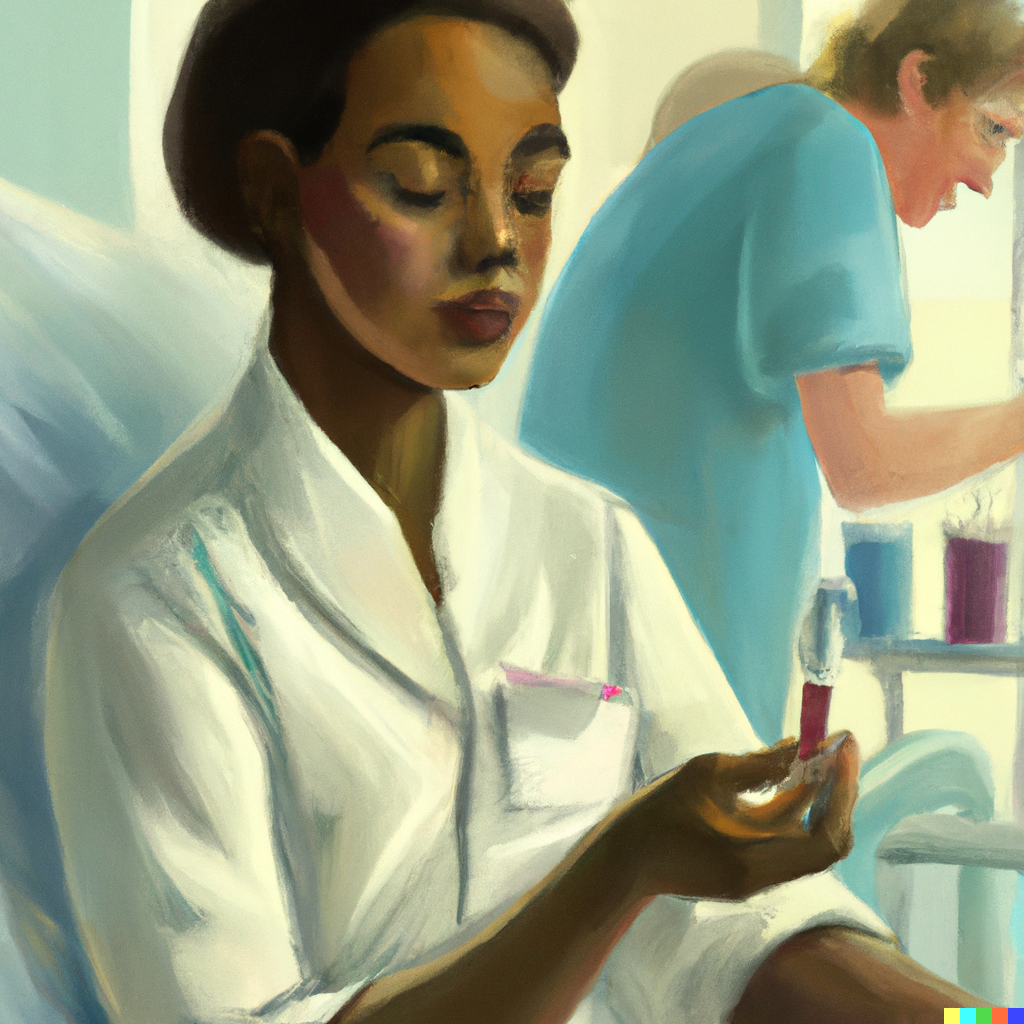
I went to my quarterly appointment to give blood this week. I look forward to it: I enjoy the unusual experience of being able to lie back in a public place, undisturbed, and just spend time with my own thoughts for ten minutes or so.
It makes me think of a passage in the sixth edition of Oxford Handbook of Clinical Medicine which made a big impression on me as a Foundation Doctor. I used to think about it almost daily.
This is not one of those passages about how you should be kind to the patient, explain in full what you are going to do, talk him or her through venepuncture, label the bottles carefully, and make a plan for communicating the results. Be all this virtue as it may, there is something else which needs communicating about the most menial of our tasks: the act of taking blood. It is partly to do with the fact that as blood is life, and, because, as Ruskin taught us, ‘there is no wealth but life’, we are led to the conclusion that what is special about taking blood is that for once we are being given something valuable by the patient. What is this wealth? The answer is time. For while the blood is flowing into our tube we cannot be disturbed. We are excused from answering our bleeps, and from making polite conversation (a few grunts in reply to patients’ enquires about the colour of their blood is quite sufficient)—and we can indulge in that almost unimaginable luxury, at least as far as life on the wards is concerned, of being alone with our own thoughts. Thinking of this sacred time as a sort of hypnotic holiday is excellent. For however many nights we have been awoken, and through however many wards we have traipsed to this bedside, this little holiday will be worth an hour’s sleep—if our mind is furnished and ready to empty itself of all objectivity. The best sight in haematological practice is, during venepuncture, to watch for those occasions when, owing to some chance characteristic of flow, the jet of blood streaming into our tube breaks up into countless globules, and before coalescing again, these globules jostle together like the overcrowded chain of events which led us to this bedside.
I’d forgotten, until I looked it up, that this passage leads into eight lines from William Blake’s Milton, complete with a footnote explaining some of Blake’s imagery and the completely unconnected influence of Blake’s editor on breast cancer surgery. That’s a whole other level of authorial indulgence.
But back to my blood donation… it was with mild dismay that I noted that the patient information sheets have been updated to include a section on things patients can do if they fear boredom during their ten-minute donation. Top of the list is playing with their mobile phone.
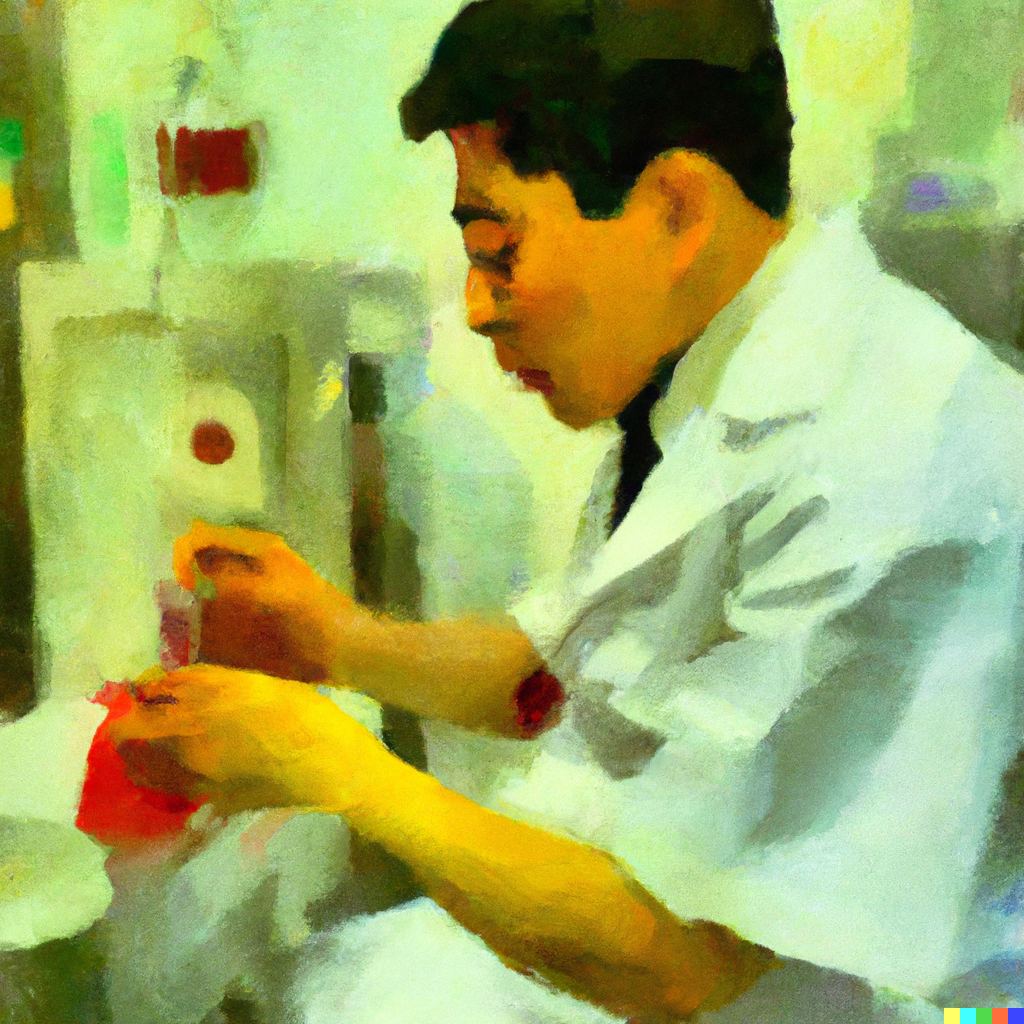
Having got my vintage 2004 OHCM off the shelf (well, Wendy’s copy, actually) I wondered what bon mots it may have about my current specialty. It didn’t disappoint:
Many of the diseases which preoccupy consultants in infectious diseases are new—food-borne E. coli, waterborne Cryptosporidium, airborne Legionnaire’s disease, blood-borne hepatitis C, and sexually transmitted HIV have come to the fore only in the last 30yrs. Why have these years been so tumultuous in the ID world? The short answer (at least for some of these) is greed, and our desire to exploit nature. For example, economic drive builds dams (increasing breeding grounds for vectors by orders of magnitude) and forces land development, putting people closer to vectors, eg ticks, mosquitoes, and rodents. Intensive farming is also making it easier for infectious agents to jump the species barrier (think of CJD).
Can we win? No: we cannot win against infectious diseases. All we can do is live with them. To help us do this in ways which are not too destructive, we need robust public health surveillance institutions, political will, quarantine laws, and above all, openness and cooperation. SARS and its spread underline these facts in a particularly graphic way: as the Chinese and other less-than-open societies have found out, when it comes to reporting infectious diseases, lying means dying.
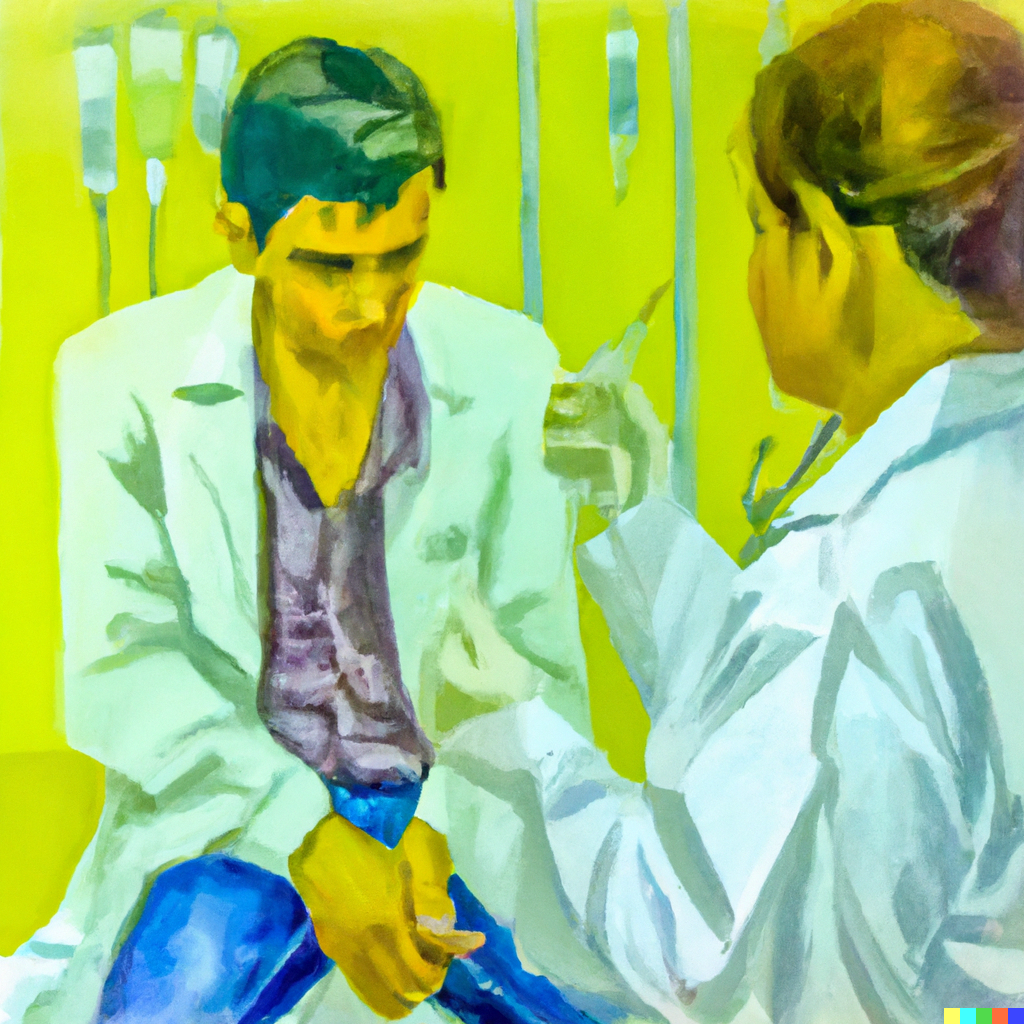
I gave a conference presentation and an in-person MSc lecture this week. I’m not certain, but I think this is the first time since the start of the pandemic that I’ve done either of those things. I think I’m rusty, and that neither was as good as it could have been. Yet, the sheer number of thoughtful and caring messages of appreciation I received following the former gave me a bit of a boost this week.
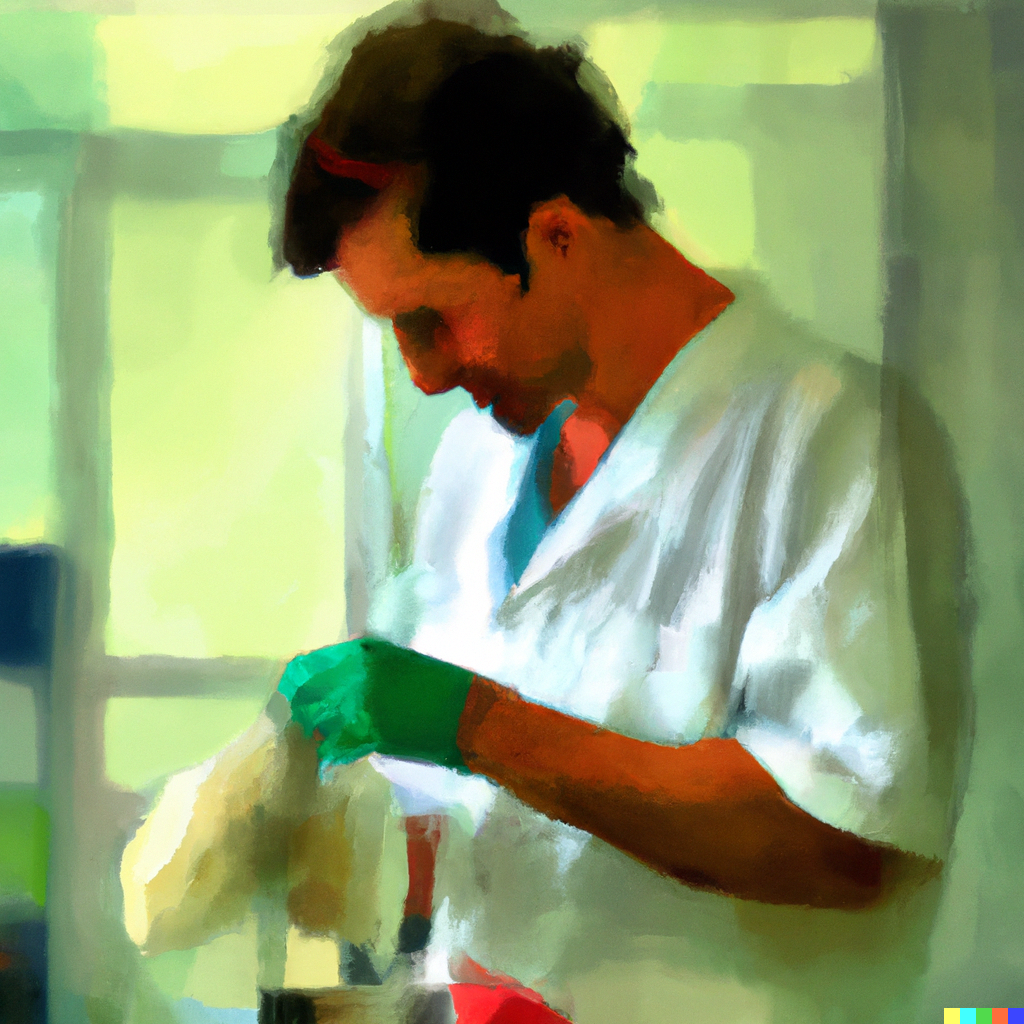
The images in this post are all AI-generated images for the prompt “a junior doctor taking a blood sample in a hospital ward, oil painting” created by OpenAI’s D-ALLE 2.
This post was filed under: Weeknotes.